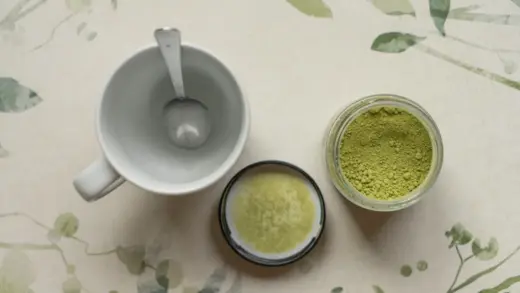Here’s a surprising fact: quality sleep can add 4.7 years to a man’s life and 2.4 years to a woman’s life. A 2023 study with 172,000 participants showed this powerful link between sleep and longevity. Our bodies need more attention to basic daily habits like proper rest as we enter our 40s. These habits help maintain our energy levels and overall health.
The big 4-0 brings changes that require us to take better care of ourselves. Research shows that sleeping 7-9 hours each night and dedicating at least 150 minutes to moderate exercise weekly can affect how we feel each day. These 10 healthy habits aren’t just random suggestions – science proves they help people stay healthy at 40 and beyond.
Let’s explore the daily routines that help us stay healthy in our 40s as our bodies naturally change. We’ll look at everything from adjusting your diet to managing stress better. These practical strategies will help keep your energy levels high despite the new challenges this decade brings.
Why Your 40s Are a Turning Point
Your body undergoes subtle yet meaningful changes when you enter your 40s. Recovery takes longer than before, and this isn’t just your imagination. Your forties represent a vital turning point that needs different strategies to maintain energy and health.
How your body and energy levels change
Your metabolism naturally slows down around age 40 because of decreasing muscle mass. Women often begin perimenopause, which causes hormonal fluctuations and leads to fatigue, sleep problems, and mood swings. Men experience gradual testosterone decline, sometimes called andropause. These biological changes explain why about 14% of Americans don’t have enough energy for daily tasks.
Physical activities need more recovery time, and new aches might appear after exercise. Your body becomes less efficient at producing energy, which makes it easier to store unused calories as fat.
The role of awareness and prevention
These challenges come with a powerful gift in your 40s—awareness. This decade gives you the perfect opportunity to listen to your body’s signals and tackle problems early. Don’t dismiss fatigue as “just getting older.” Your body sends these signals for a reason.
Regular health screenings become more valuable now. A proactive approach helps catch early imbalances that routine checkups might miss. Your family’s health history also helps identify risk factors that need monitoring.
Why small habits matter more now
Small, consistent changes produce remarkably different results in your 40s compared to earlier years. Your body’s natural resilience decreases, so daily choices about nutrition, sleep, and movement either create positive effects or speed up decline.
Experts say it’s not about chasing youth but embracing strength, stability, and eco-friendly self-care. Simple habits like staying hydrated, managing stress, and keeping consistent sleep schedules give better results now than before. What seemed like minor wellness practices in your 20s and 30s become vital energy-saving techniques as you direct your way through this significant decade.
Daily Nutrition Habits That Boost Energy
The food we eat shapes our daily energy levels, and this becomes even more important in our 40s. Our body’s response to different foods directly impacts how energetic we feel throughout the day.
Eat more protein to maintain muscle
Your body becomes less effective at processing protein at the time you hit 40. You need to increase your protein intake to keep your muscle mass. Research shows that people aged 40-50 should eat 1-1.2 grams of protein per kilogram of body weight each day. A 165-pound person needs about 75-90 grams of protein daily. We start losing muscle mass faster in our 40s. Studies suggest we lose 3-8% of muscle mass every decade after turning 30.
I make protein a priority at every meal. My go-to sources are lean meats, eggs, Greek yogurt, and plant options like beans and nuts. This helps me curb tiredness while supporting my metabolism and hormone balance.
Include magnesium-rich foods
Your body needs magnesium to power over 300 enzyme systems, including the ones that produce energy. Half of all Americans don’t get enough of this vital mineral.
I keep taking magnesium-rich foods with my meals. Dark leafy greens are great – spinach gives you 78mg per half cup. Pumpkin seeds pack 150mg per ounce, almonds provide 80mg per ounce, and a whole avocado contains 58mg. These foods help your nerves work properly and keep your cells energized.
Get enough B vitamins and vitamin D
B12 absorption becomes tougher with age, yet it’s vital to your energy metabolism. About 35% of Americans don’t get enough vitamin D, which leads to muscle fatigue.
Animal products give me my B12, while I get vitamin D from sunshine and sometimes supplements, especially during winter. These nutrients boost my energy and keep my mood stable – something that really helps during the hormone changes in our 40s.
Stay hydrated throughout the day
Losing just 1-3% of your body fluid can hurt your energy, mood, and brain function. Good hydration helps move nutrients to your cells and removes waste.
Eight 8-ounce glasses daily works best. I carry a water bottle as a reminder. Feeling tired? I reach for water before coffee because dehydration often feels like fatigue.
Movement and Sleep: The Energy Duo
Movement and sleep work together to keep your energy levels up after 40. You need both – they create the foundation that builds your daily energy.
150 minutes of weekly movement
The American Heart Association suggests you should get at least 150 minutes of moderate-intensity activity each week. You don’t need intense gym workouts. A brisk walk at 2.5 miles per hour or faster counts as moderate intensity. Breaking this into 30-minute sessions five days a week makes it easier to manage. You’ll know you’re working at the right level when your breathing gets heavier but you can still chat with someone.
Strength training to fight fatigue
Your muscle mass starts declining in your 30s – about 3-8% every decade. That’s why strength training twice a week is a vital part of fighting fatigue. Resistance exercises have proven to be really effective because they help build and preserve muscle mass. Your physical strength directly links to your energy levels – stronger muscles need less effort for everyday tasks.
Stretching and walking for circulation
A short walk can boost your circulation dramatically. Stretching helps blood flow, reduces stress, and eases muscle pain among other benefits. My morning starts with gentle stretches that get blood flowing to my muscles. Research shows that something as simple as stretching your calves can improve your vascular health. People with peripheral artery disease can walk further with less pain.
Sleep routines that support recovery
A consistent bedtime routine becomes more important after you turn 40. My routine includes finishing meals 2-3 hours before bed. The wind-down starts an hour before sleep – lights get dimmer and I read something interesting but not too exciting. These simple habits tell your body it’s time to rest.
How sleep quality affects energy
Sleep quality has a deep effect on your daily energy. The way you feel about your sleep can predict how tired you’ll be the next day. Your body uses nighttime to repair tissue, build muscle, and recharge energy stores. Sleep, diet and exercise work together to balance your energy and create that feeling of vitality throughout your day.
Stress, Hormones, and Mental Clarity
Chronic stress quietly depletes your energy reserves, especially after you turn 40. Your body responds to stress by releasing cortisol, the main stress hormone that naturally peaks in the morning and drops at night. This pattern gets disrupted when stress becomes chronic, which leads to constant fatigue, anxiety, and burnout.
How stress drains your energy
Your adrenal glands become overworked from long-term stress, which creates cortisol imbalances and leaves you exhausted. Women face greater challenges during perimenopause as their body’s estrogen fluctuations make them more sensitive to stress. Research shows that 85.3% of post-menopausal women feel physically and mentally exhausted, while only 19.7% of pre-menopausal women report similar symptoms.
Daily mindfulness or journaling
Your parasympathetic nervous system’s “rest and digest” response activates through journaling, which reduces stress effectively. Writing helps you process your emotions and thoughts about stressful events more completely. Just 5-10 minutes each day helps you identify anxiety-causing fears, recognize stress triggers, and practice positive self-talk.
Recognizing signs of hormone imbalance
Unexpected fatigue, mood swings, weight changes, brain fog, and sleep problems could signal hormone issues. These symptoms typically become more noticeable in your 40s as hormone levels naturally change. A small 1-3% fluid loss from mild dehydration can make these symptoms worse and affect your energy and brain function.
When to get hormone levels checked
You should ask about hormone testing if you feel constantly tired and notice menstrual changes. Symptoms often point to perimenopause between ages 40-45. Multiple daily cortisol measurements can help assess your adrenal function if tiredness persists.
Conclusion
Your body works differently when you reach your 40s. All the same, this decade is a chance to build habits that support these natural changes instead of resisting them.
Daily choices about nutrition, movement, sleep, and stress management create lasting energy. Meals rich in protein help maintain muscle mass. Foods with magnesium and vital vitamins boost cell energy production. Your body needs proper hydration to function at its best.
Regular movement becomes crucial after 40, especially when you have both cardio and strength training in your routine. These activities help curb the natural muscle loss that speeds up during these years. On top of that, your body needs quality sleep to repair and recharge. Good sleep habits matter more now as hormone changes can affect your rest patterns.
Stress management like journaling or mindfulness practices play a bigger role now. Age makes our stress response more sensitive, so managing stress stops unnecessary energy drain.
These habits don’t turn back time – they help us work with our changing bodies. The focus moves from chasing youth to building green practices that boost energy, clarity, and wellbeing. Each change might seem small alone, but together they create powerful results.
Your body needs more attention than ever before. Fatigue, unusual stress responses, or sleep problems are signals to listen to, not barriers to push through. With awareness and proven habits, your 40s become a time of growth rather than decline. You trade young resilience for wisdom, purpose, and balanced energy that carries you forward.
For a complete guide on staying healthy in your 40s, check out our Ultimate Guide to Healthy Aging and Lifestyle After 40.
Key Takeaways
Your 40s mark a crucial turning point where small daily habits create outsized impacts on energy levels and overall health. Here are the science-backed strategies that matter most:
• Prioritize protein intake: Consume 1-1.2 grams per kilogram of body weight daily to combat the 3-8% muscle loss that occurs each decade after 30.
• Combine movement with quality sleep: Aim for 150 minutes of weekly exercise plus strength training twice weekly, paired with consistent 7-9 hour sleep routines.
• Focus on key nutrients: Include magnesium-rich foods, B vitamins, and vitamin D while staying properly hydrated to support cellular energy production.
• Manage stress proactively: Use daily mindfulness or journaling to prevent chronic stress from disrupting cortisol patterns and draining energy reserves.
• Listen to your body’s signals: Recognize that fatigue, mood changes, and sleep disruptions are meaningful feedback requiring attention, not obstacles to push through.
The goal isn’t to fight aging but to work with your changing physiology. These habits compound over time, creating sustainable energy that supports you through this transformative decade and beyond.
About the Author

B. Alan — Health & Wellness Blogger.
Health writer passionate about evidence-based wellness and supplements. Alan has spent years exploring holistic approaches, researching medical studies, and simplifying complex health topics for everyday readers.








